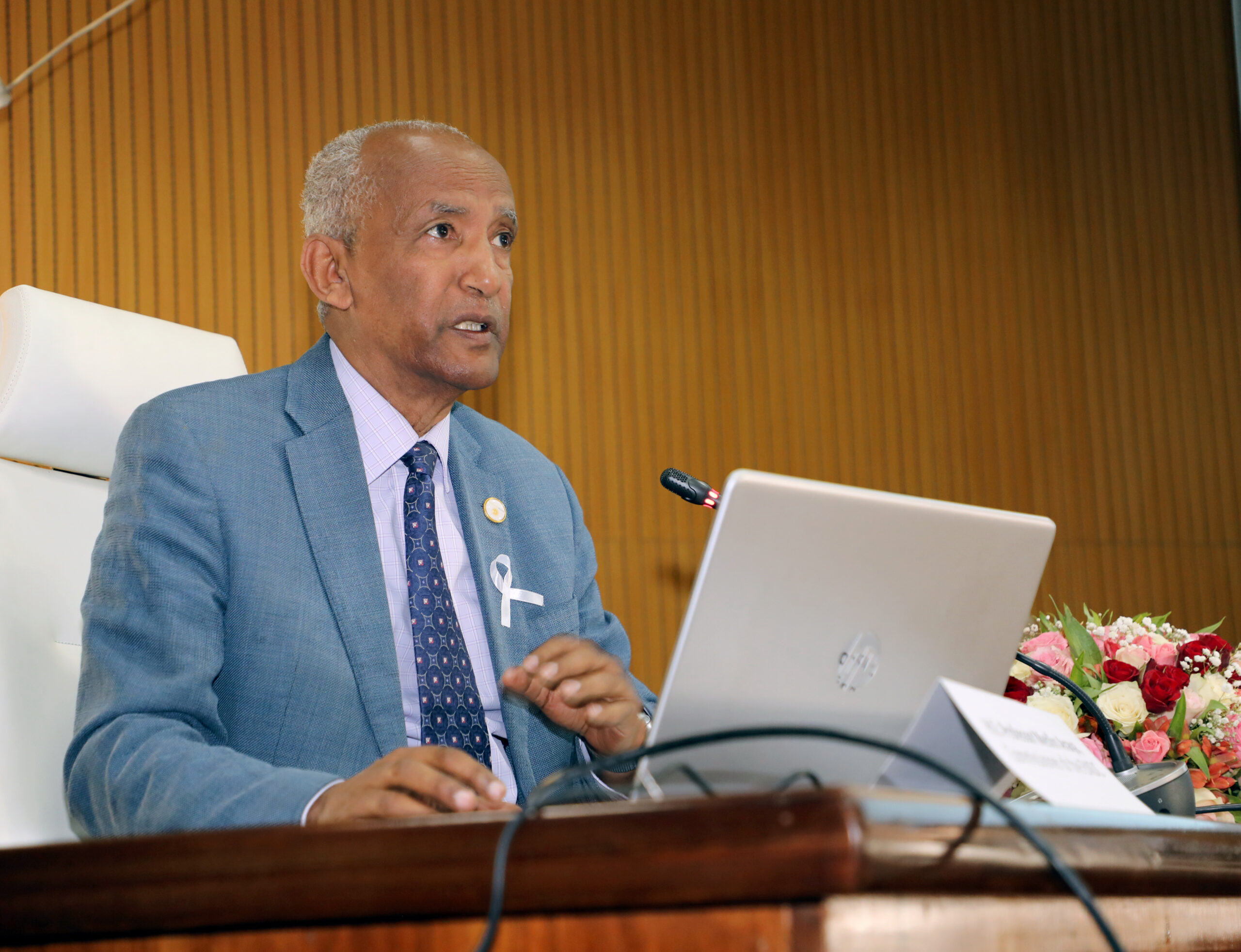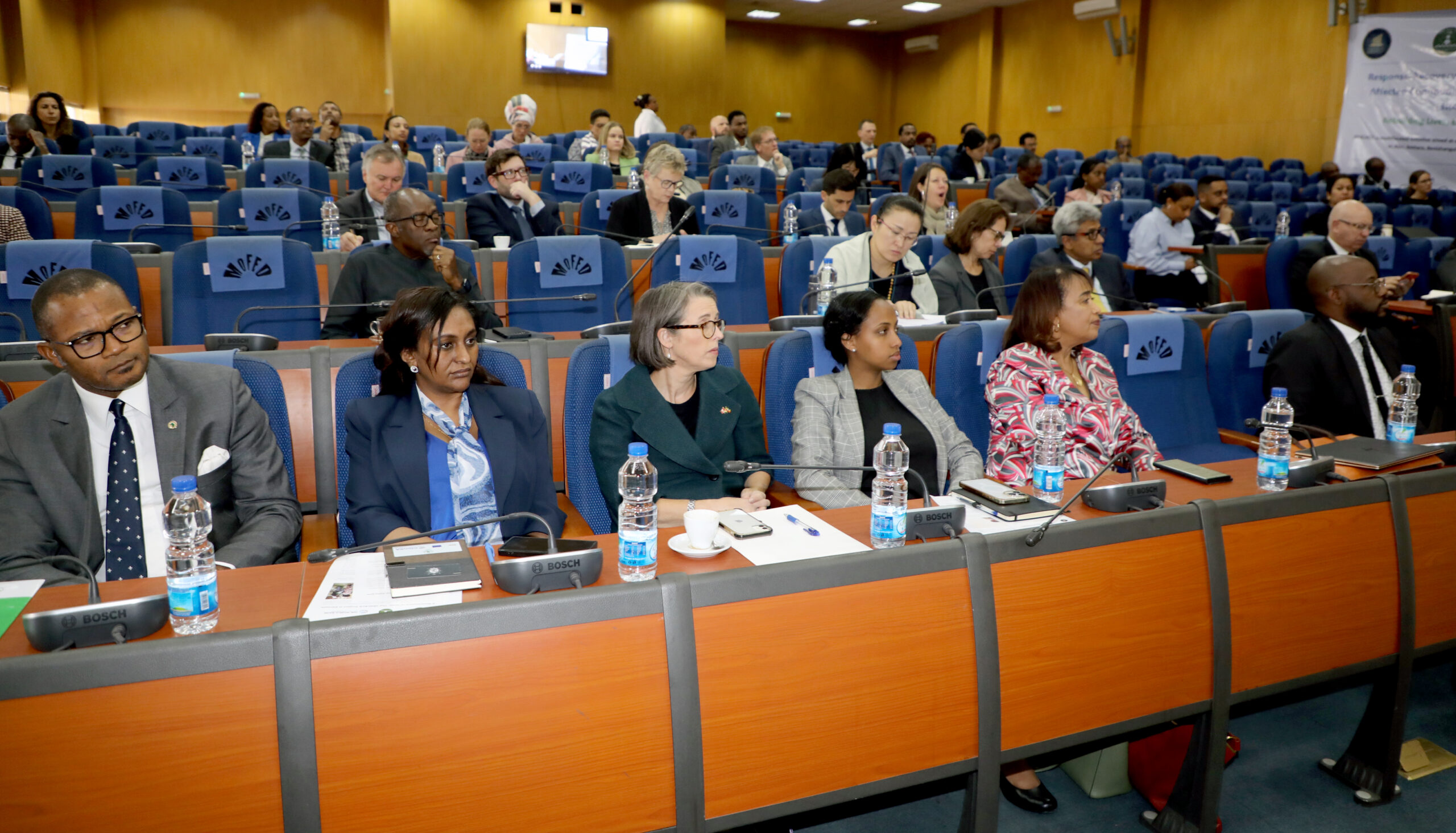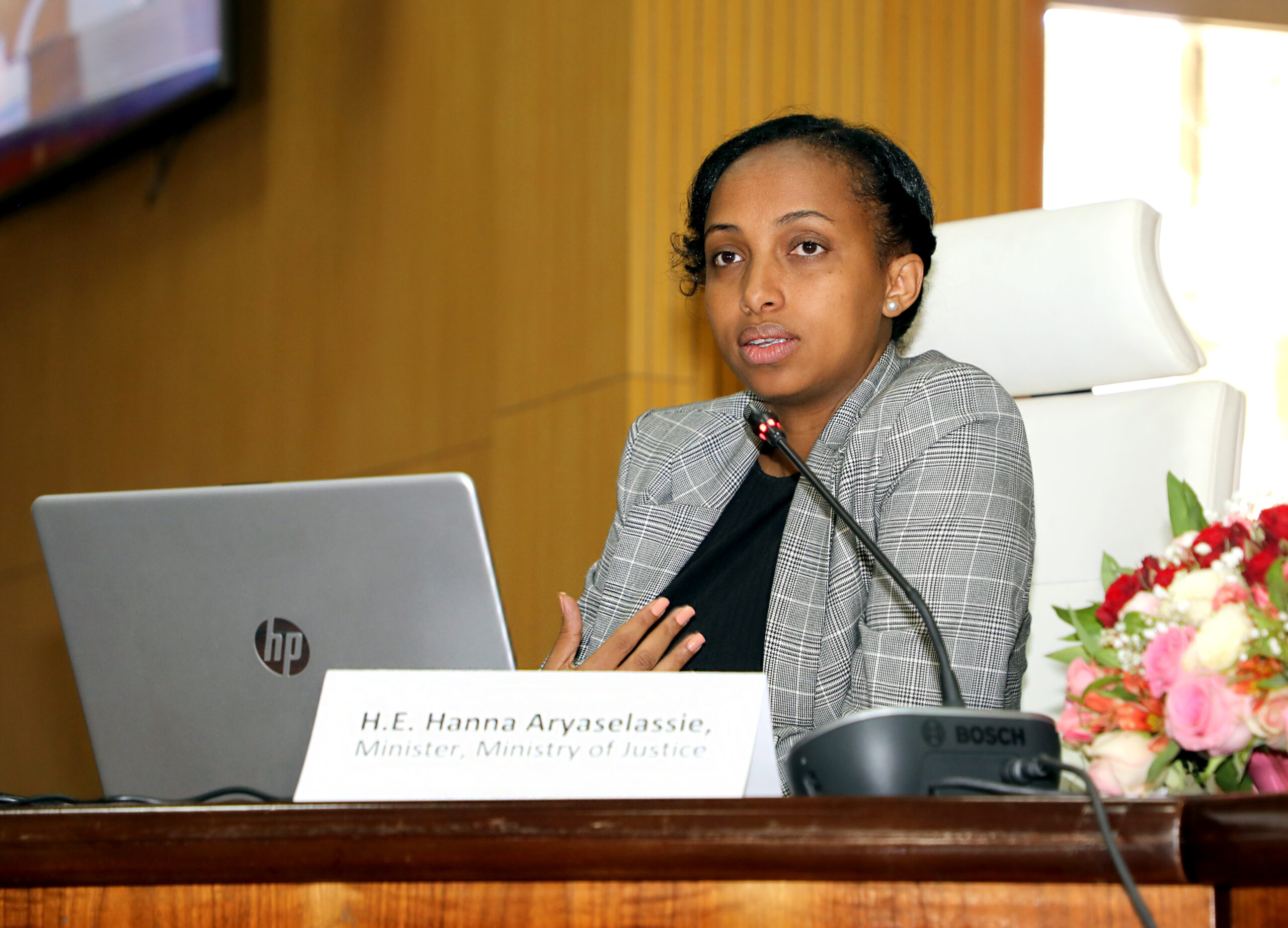The Development Partners Group (DPG) and the Government convened a Heads of Agencies meeting to discuss their joint and collective efforts in promoting lasting peace in Ethiopia. The meeting focused on three key areas: advancing national dialogue, implementing transitional justice, and supporting reconstruction and recovery following the recent conflict.
In her opening remarks, H.E. Semereta Sewasew, State Minister for Finance, emphasized the Ethiopian Government’s commitment to strengthening peace. “Peace is the foundation for sustainable development and the successful implementation of reforms” she stated. She highlighted key ongoing initiatives, noting that the successful implementation of the Cessation of Hostilities Agreement (COHA) has been a critical step forward. “Basic services are being reinstated, local administrations are becoming functional again, and broader reconstruction efforts are forthcoming.” she added.

The session featured updates on Ethiopia’s National Dialogue Initiative presented by Professor Mesfin Araya, Commissioner of the Ethiopian National Dialogue Commission (ENDC). He detailed the phased approach of the initiative, which includes exploratory, preparatory, and dialogue phases. “The ENDC aims to foster an independent, inclusive, and transparent dialogue that addresses historical grievances and promotes cohesion among Ethiopia’s diverse communities”, said Professor Mesfin. To date, 964 woredas across 10 regional states and two city administrations have participated in the agenda-setting process, with efforts ongoing to include Amhara and Tigray. Professor Mesfin highlighted key achievements, such as partnerships with international stakeholders and the inclusion of marginalized groups, including internally displaced persons (IDPs).However, challenges remain, including logistical constraints, ongoing conflicts, and limited public participation. “We are committed to overcoming these obstacles through effective communication and strong community engagement,” he reaffirmed.
The meeting also included a presentation by H.E. Hanna Arayasilassie, Minister of Justice, who provided an update on the implementation of Ethiopia’s Transitional Justice (TJ) policy. Adopted in April 2024, the policy aims to address historical conflicts and foster sustainable peace. “This is a foundational process to heal the country from its history of conflicts,” she remarked. The policy’s key pillars include criminal accountability, truth-seeking, reparations, conditional amnesty, and institutional reform. The Minister stressed the importance of inclusivity, highlighting the active involvement of vulnerable groups and women in the consultation process.
In alignment with these initiatives, the Ministry of Finance, UNOPS, and UNDP have presented sample recovery, reconstruction and resilience building efforts. To this end, Mr. Andinet Tadesse, Project Coordinator at the Ministry of Finance, provided updates on the implementation of the Response-Recovery-Resilience for Conflict-Affected Communities (3R4CAC) project. Funded by a $300 million World Bank grant, the project aims to benefit 3.5 million individuals across five regions. “The focus is on restoring basic services, addressing gender-based violence, and promoting community-driven development,” Andinet explained.
The United Nations Office for Project Services (UNOPS) also outlined its ongoing efforts to enhance Ethiopia’s infrastructure for recovery. Mrs. Tigist Kelemework, Portfolio Senior Manager at UNOPS, highlighted key projects aimed at restoring damaged health and education facilities, improving water and sanitation systems, and supporting local governments in conflict-affected areas.
Mr. Moncef Kartas, Head of UNDP’s Peace Support Facility in Ethiopia, stressed the importance of aligning development cooperation with the broader peace agenda. He highlighted UNDP’s ongoing support for capacity-building initiatives, transitional justice mechanisms, and conflict-sensitive recovery programs. “Our role as development partners goes beyond funding initiatives; it is about building capacities that enable local ownership of these processes,” he stated. Mr. Kartas also emphasized that while the restoration of basic services and the reinstatement of government systems are crucial, providing opportunities for income generation and psychosocial support are equally important.
Following the presentations, discussions took place, during which participants provided valuable and constructive feedback. Government officials addressed the questions raised by participants and outlined the next steps. The discussion highlights a shared commitment to tackling Ethiopia’s challenges and forging a path toward a peaceful and resilient future.


